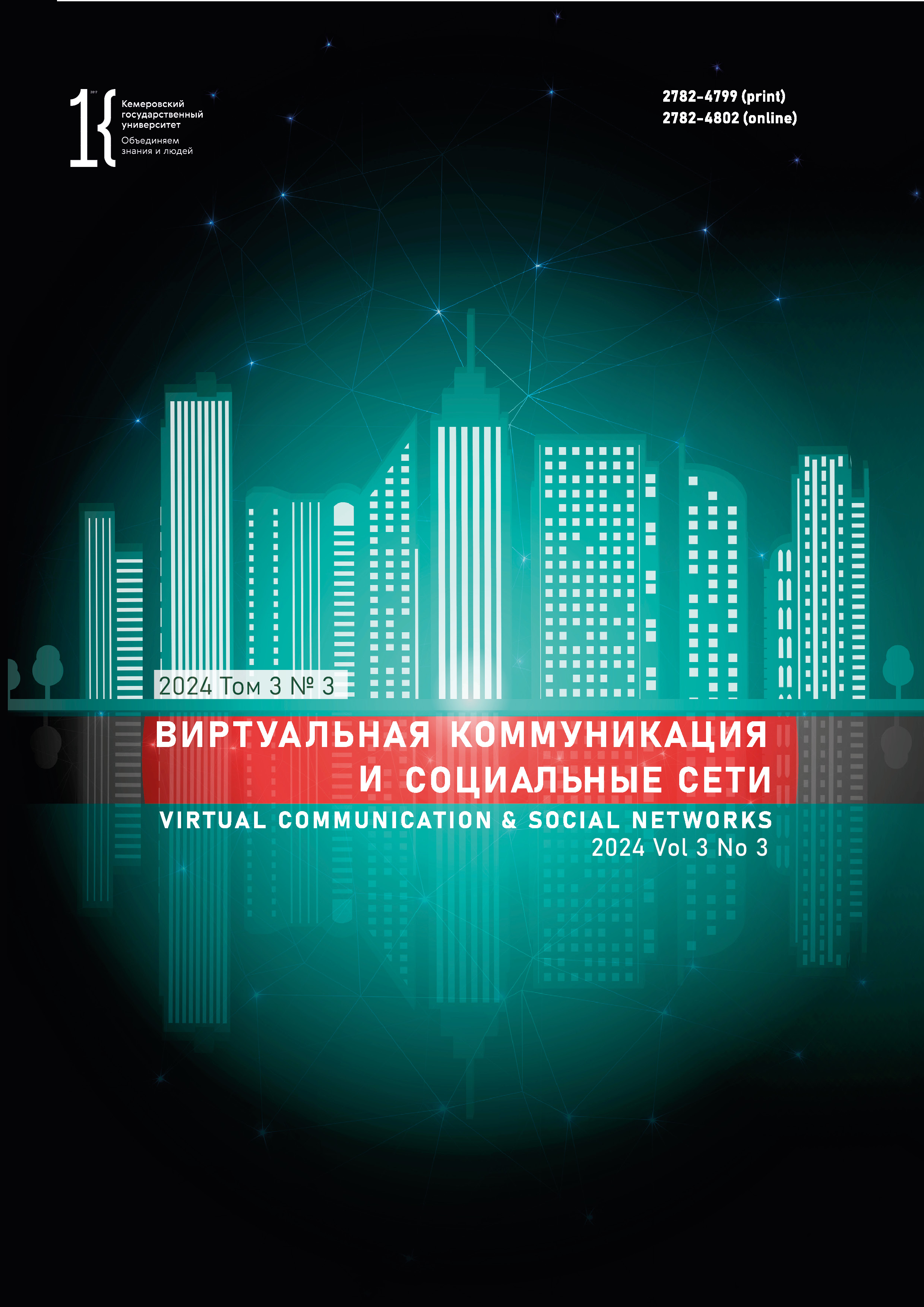Russian State Institute of Performing Arts
Kemerovo, Russian Federation
Kemerovo, Russian Federation
In social nets, personal narrative serves as a means of self-identification and self-awareness. A user constructs a concept of Self as a temporary I-image for virtual self-perception and self-explanation. As an interpretative process, narrative endows the story of emotions and experiences with personal meaning. The research objective was to describe virtual narrative as part of identification processes in public accounts in VKontakte social net. Personal narratives were used to detect values and beliefs manifested as text elements. This information revealed neurotic conflicts, triggers, points of tension, identify mechanisms, psychological dominants, etc. The research relied on narrative psychology, which emphasizes the constructive role of language in personality development: people understand themselves and the world through oral and written speech. The analysis of meanings and structural elements of narratives published in social networks made it possible to construct a matrix of identification preferences of the narrator, thus modelling a basic personal construct. Observing how the narrators interpreted their experience revealed the mechanisms behind their subjectivity, worldview, and temporal attitude. The authors believe that narrative psychology brings to surface the temporal aspect of human experience, which tells a lot about the personality of the narrator. Writing about their personal experience allows narrators to identify their values and beliefs, as well as brings clarity and meaning to life as a project in words. Personal narrative offers strategies for self-fulfillment that fit one’s actual psychological resource state, i.e., it is not the narrator that shapes the narrative, but the other way round. The subjective linguistic worldview revealed by personal narratives in social nets makes it possible to profile the narrator’s personality.
narrative, self-identification, narrative psychology, social network VKontakte
1. Annikova L. V., Bakhutashvili T. V., Ilchenko E. V., Kosinceva Yu. F. Social-group identification and identity of modern Russian youth. Kazan social-humanitarian bulletin, 2019, (4): 4–9. (In Russ.) https://doi.org/10.24153/2079-5912-2019-10-4-4-9
2. Brockmeier J., Harre R. Narrative: The problems and promises of an alternative paradigm. Voprosy Filosofii, 2000, (3): 29–42. (In Russ.)
3. Zuckoff A., Gorscak B. Finding your way to change: How the power of motivational interviewing can reveal what you want and help you get there. Harkov: Gum. tsentr, 2019, 352. (In Russ.)
4. Ilyin I. P. Narrative. Western literary criticism of the XX century, ed. Tsurganova E. A. Moscow: Intrada, 2004a, 275–277. (In Russ.)
5. Ilyin I. P. Narrative typology. Western literary criticism of the XX century, ed. Tsurganova E. A. Moscow: Intrada, 2004b, 277–280. (In Russ.)
6. Crossley M. L. Narrative psychology. Self, trauma and the construction of meaning. Harkov: Gum. tsentr, 2020, 284. (In Russ.)
7. Lappo M. A. Self-identification: Semantics, pragmatics, and language resources. Novosibirsk: NSPU, 2013, 180. (In Russ.) https://elibrary.ru/stlqeb
8. Moshtyleva E. S. Unreliable narration in social media (Forensic linguistic aspect). Fundamental linguistics and problems of forensic examination: Social networks as an object of scientific and expert analysis: Proc. Intern. Sci. Conf., Moscow, 5–6 Oct 2021. Moscow: Pushkin Institute, 2022, 308–317. (In Russ.) https://elibrary.ru/udbqwu
9. Rogova E. N., Yanitskiy L. S. Narrative as involvement technology: Socio-psychological groups in VKontakte social net. Virtual Communication and Social Network, 2022, 1(3): 161–166. (In Russ.) https://doi.org/10.21603/2782-4799-2022-1-3-161-166
10. Smirnova E. V. Approaches to the concept of storytelling practice in different areas of scientific knowledge. Lexicographic piggy bank, ed. Goncharova V. V. St. Petersburg: SPbSUE, 2021, iss. 11, 33–39. (In Russ.) https://elibrary.ru/pxdvzx
11. Freud S. The ego and the id. In: Freud S. Psychology of the unconscious. Novosibirsk: Rif Plius, 1997, 503–519. (In Russ.)
12. Shapoval E. A., Maltseva E. A. Social identification of youth in social networks. Law and order: Priority directions of development, eds. Turkulets S. E., Listopadova E. V. Khabarovsk: FESTU, 2019, 381–385. (In Russ.) https://elibrary.ru/zeqaip
13. Schwartz S. E. The absent father effect on daughters. St. Petersburg-Moscow: Tsentr gumanitarnykh initsiativ; Dobrosvet, 2021, 364. (In Russ.)
14. Erikson E. Life cycle: The epigenesis of identity. Psychology of personality, ed. and comp. Raygorodsky D. Ya. Samara: Bakhrakh-M, 1999, vol. 1, 305–348. (In Russ.)
15. Yadov V. A. Social identification in a crisis society. Psychology of personality in the works of domestic psychologists, comp. Kulikov L. V. St. Petersburg: Piter, 2009, 332–344. (In Russ.)
16. Yanitskiy M. S. Value orientations of a person as dynamic system. Kemerovo: Kuzbassvuzizdat, 2000, 204. (In Russ.) https://elibrary.ru/rldjrh
17. McAdams D. P. The psychology of life stories. Review of General Psychology, 2001, 5(2): 100–122. https://doi.org/10.1037/1089-2680.5.2.100
18. Taylor C. The malaise of modernity. House of Anansi Press Inc., 1991, 128.

















